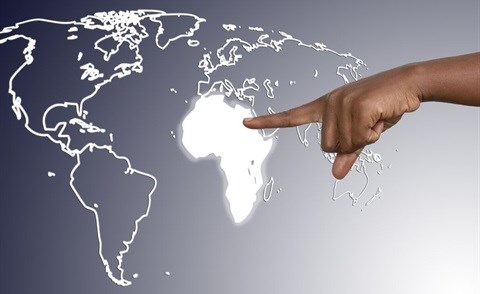





Africa - from hopeless to rising
In May 2000, The Economist ran a cover story on Africa, headlined 'The Hopeless Continent'. However, in December 2011, the continent was again on The Economist's cover, this time under the headline 'Africa Rising'. Another five years on, Africa's attraction is no longer in question.

While there have been major improvements, the continent remains one of the world's least developed, most indebted, most food-insecure and most marginalised. However, by focusing on sustainability and shared value, African businesses are now poised to drive significant growth through innovative solutions that seek to address these market failures. However, a step change is required to deliver progress at a larger scale and greater speed.
The report, based on consultations with CEOs of some of Africa's leading companies, suggests that scaling innovations in four categories - new markets, collaborative operating model, resource efficiency and trust - can improve competitiveness, and better address changing customer needs and the wider needs of society.
Companies can generate new revenue streams by developing new consumption opportunities for the rising African consumer class, either making incremental improvements or transformational changes to their current business models through new offerings that directly address pressing needs in areas like access to markets, health, education, energy and financial services.
2. Create collaborative operating models - expanding economic opportunity, raising productivity and increasing growth are crucial, but not sufficient. The quality of growth-its composition and equity-is equally important for alleviating systemic development challenges. It requires operations that directly integrate the low-income population as entrepreneurs, suppliers, distributors, retailers, employees and consumers, to create localised and inclusive value chains. It also means ensuring well-managed operations (e.g. health and safety, labour standards, human rights, gender diversity and inclusiveness in the workforce, as well as environmental responsibility).
3. Drive resource efficiency - we are rapidly approaching a point in Africa at which the linear model of growth is no longer viable. Due to rising global affluence, resource availability cannot keep up with demand. To reduce this impact, companies must do a few things as pure business necessity: Firstly, they can promote circular economy concepts using "lasting" resources only, to break the link between scarcity and economic activity. Secondly, more resource "liquidity" can be created in markets by making products and assets more accessible and easy to convert between users and industries. Thirdly, companies can focus on reducing the amount of scarce energy, water and transport they use in their daily operations.
4. Build trust through transparency - nothing is more fundamental to a healthy business than the belief held by consumers, the public, investors, regulators, suppliers and stakeholders that they are doing business with a trustworthy organisation. With the growing trade across Africa, issues of corruption and modern slavery pose particular risks to trust in Africa. For those with poor operations visibility, the new era of transparency creates significant risks. Companies can build trust and drive productivity gains by embedding high standards throughout their value chain and transparently sharing information.Capturing the prize
This report offers a blueprint for unlocking these high-value opportunities, advising companies to focus on three key transformation steps. Firstly, create a corporate strategy that drives clear business and stakeholder value based on information from the field. Next, evaluate the internal organisational requirements to deliver new sources of revenue, as well as the external and internal specifics of establishing an operating model to deliver shared value.
Lastly, companies need to deliver on the strategy-systematically transforming their supply chain, operations and products and service. To this end, African businesses have the opportunity to unlock around $350bn a year in value from new opportunities that address socio-economic and environmental challenges.
Efforts by leading companies suggest that this change is already happening-and that it is working.
Excellent examples are:
Click here to view the full report.